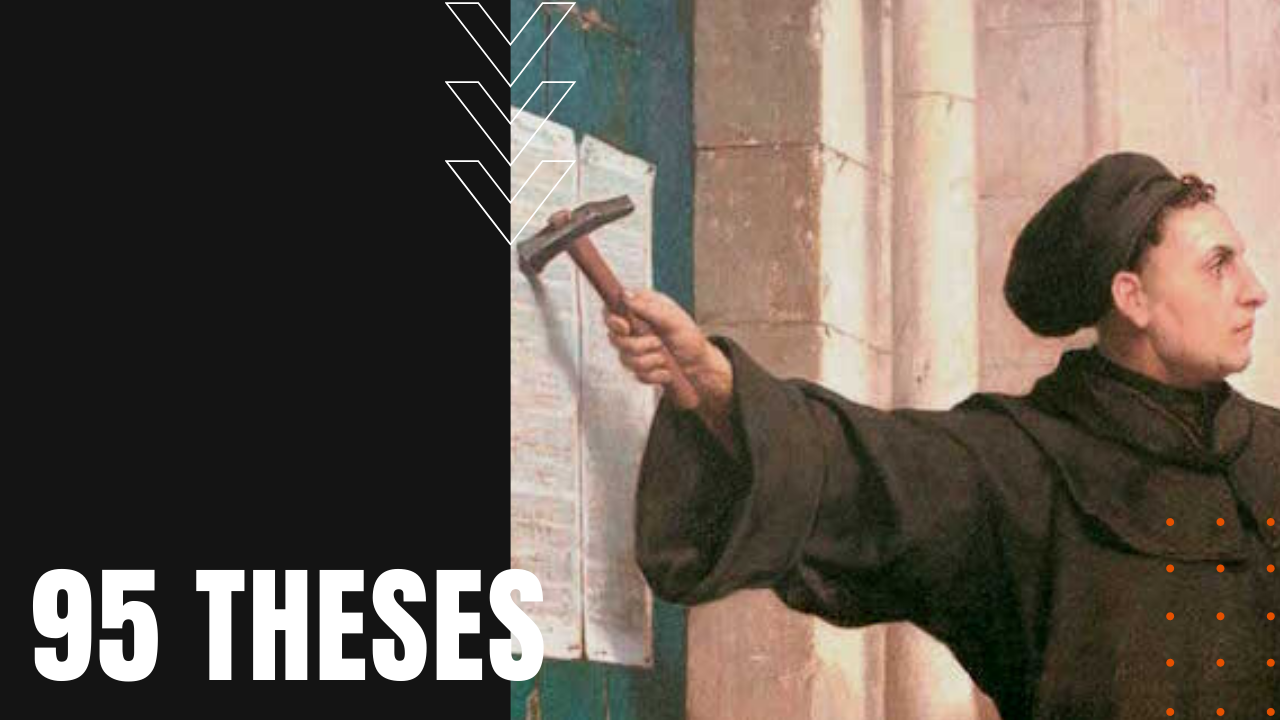95 Theses: Martin Luther’s Disputation on the Efficacy of Indulgences

Shunning his wealthy father’s desire for his son to study law, as an undergraduate at the University of Erfurt—Germany’s premier university at the time—Martin Luther experienced a violent lightning strike that nearly killed on the spot.
Considering the incident a sign from God, in the summer of 1505, Martin Luther entered an Augustinian monastery, where his biblical studies soon placed him at odds with the Catholic Church, which taught that salvation could be attained through works of righteousness, while Luther, like Augustine before him, believed that salvation came solely through faith and by nothing more than divine grace.
Luther Objects to Selling Indulgences
Committed to his belief in the primacy of the Bible, Luther vigorously objected against the Catholic Church’s corrupt practice of selling indulgences, which were monetary payments to Church officials that supposedly absolved a person of their sins, or released one’s soul from purgatory after death.
Martin Luther’s 95 Theses
In response, Luther wrote the Disputation on the Power and Efficacy of Indulgences, also known as the 95 Theses, nailing or hanging his list of debate questions on the main entry door to the Wittenberg Castle church, announcing his intention to hold an academic debate on 95 non-accusatory questions concerning theology and Christian belief, including his central ideas that God favors repentance from believers, and that faith alone would lead a believer to salvation through Christ.
Luther’s 95 Theses quickly circulated throughout Germany and beyond, and when Luther was summoned to Augsburg in 1518 to defend his opinions before an imperial assembly or die, when Church officials supported the use of indulgences, Luther refused to recant his beliefs, which in turn led Pope Leo the 10th to issue a papal bull in the summer of 1520, condemning Luther’s beliefs as heretical.
Excommunicated and Banned
When Luther refused to recant after a second warning, on January 3rd, 1521, Pope Leo excommunicated Luther from the Catholic Church. In May of that same year, Holy Roman Emperor Charles the 5th signed an edict against Luther, ordering his writing to be burned. Despite pushback by the Catholic Church, as other religious and political leaders supported Luther’s doctrinal beliefs, the Protestant Reformation spread rapidly throughout Germany and Western Europe, leading to the birth Christian denominations that forever changed Christian practice and beliefs throughout the Christian world.
